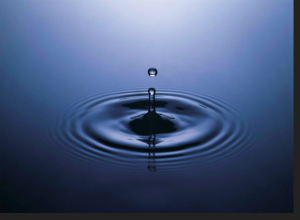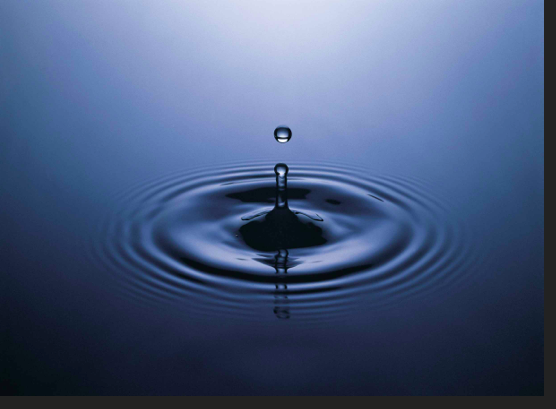 I live in the provinces (Napier) and am Chair of Labour’s Provincial and Rural sector committee, so I am going to post about a local HB issue that has implications for a number of provincial and rural cities and communities.
I live in the provinces (Napier) and am Chair of Labour’s Provincial and Rural sector committee, so I am going to post about a local HB issue that has implications for a number of provincial and rural cities and communities.
Over the past couple of weeks, I have been labeled in the media as anti-growth because I apparently don’t or won’t support water storage. Nothing could be further from the truth. So to be clear: in principle, I have no opposition to water storage (irrigation). However, when it comes to Hawke’s Bay’s Ruataniwha Water Storage project, I do have a number of specific concerns. If these concerns are addressed, then I will have sufficient confidence to be able to throw my full support behind the dam. Let me outline the issues:
1. Financial viability. When spending ratepayers and / or taxpayers money, it is important to ensure that any infrastructure investment is financially viable over the medium-to-long term. While there is often a ‘public good’ factor built into public sector investment, there still a very clear expectation that rate payers and taxpayers will end up with value for money. In the dam’s case, this means there needs to be sufficient water up-take to ensure that both the public and private investors earn an economic return on their capital. I understand that only around 13% of landowners (or approximately 20 out of 150) have formally lodged an expression-of-interest in participating in the irrigation scheme. I recall being informed there needed to be at least 40% (or 60 out of the 150 landowners) of uptake for the scheme to be financially sustainable. It may be that given time, more farmers will sign up, but I cannot help but be concerned that so few of the 150 landowners in the affected catchment have expressed interest; especially considering the amount of targeted consultation undertaken by the HBRC.
2. Environmental sustainability. I don’t think anyone would disagree that any project undertaken in this day-and-age must be environmentally sustainable. Clean and green is our Nation’s global brand and sustainably managing our natural resources for future generations should not only be a statutory requirement but a moral duty.
Environmental experts have informed me that the proposed increase in nitrate levels caused by the forecast change in land use is significant to the point where it will adversely affect the Tukituki’s fragile ecosystem. Once nitrate levels increase to certain levels, aquatic life is replaced with weed that, once established, is nearly impossible to eradicate. In fact the same problem in Lake Taupo has resulted in a forced reduction in cattle stocking levels in an attempt to restore the health of the Lake.
3. Protection of the region’s strategic assets. I am unsure why the dam will be held in the same Regional Asset Holding Company that other strategic assets, like the Napier Port, also reside. Most investors know that strategic assets are held in separate companies to protect them from the potential failure of an unrelated investment, unless they are used for either; a) leveraging purposes, which in this case, would mean the port is being used to guarantee the dam; or b) tax mitigation (and if this is the case, I hope the HBRC has very good advice).
I would be a lot happier if the dam was in its own holding company at complete arms length from any of the region’s other strategic assets.
4. Economic development. I see economic development as the greatest issue facing provincial NZ going forward.
If the forecast increase in produce and productivity resulting from the dam’s presence is going to result in the construction of down-stream manufacturing plants that permanently employ 1,800 people earning a decent wage who wouldn’t be otherwise in work; if it is going to necessitate the creation of 20 new fulltime roading jobs, 80 maintenance roles and 300 new service industry positions receiving a living wage, that otherwise wouldn’t exist… then, great. If EIT is going to have to expand their educational offerings in order to train Bay men and women who can then take advantage of the increased opportunities created…then, fantastic! Two thousand Bay workers paying taxes, participating in their regional and local economies and helping create sustainable wealth and economic growth is worthwhile.
If, however, a spend of $280m will only create minimum wage on-farm jobs filled by imported Pilipino workers and Island labourers, harvesting produce that exits the region to other cities, then I personally don’t think this is a good use of $280m of economic development money.
I don’t think the four criteria I have outlined are unreasonable at all. In fact, the same criteria should be applied to any project undertaken with taxpayer and ratepayer money. I understand the value in inter-generational regional economic development, and no one wants to see the Bay and our cities prosper and thrive more than me, but I also understand the risk in massive capital development failure, and that is not a cost we want future generations to bear if we get it wrong.
There is also one other philosophical concern I have: I really don’t think that those who are really struggling to put food on the table in the cities should pay for the largest transfer of wealth from the city to the provinces in HB’s history.
The result of this dam is that the capital value of the affected properties is going to significantly increase (and landowners do not pay any tax on that capital gain once it is realized). If this dam is so good, then surely landowners can fund its development by borrowing against the increase in capital value and forecast increases in production. I do get the argument that without local and central govt investment this simply wouldn’t happen, and that the economic benefits for the whole region may well be huge, but I still have a feeling of disquiet; especially since there is no CGT. It feels like corporate welfare that the Nats are so good at dishing out.
A massive project on this scale needs to be expertly managed. Raising concerns as I have does not make me “anti-growth”. On the contrary, I believe ignoring these concerns would be irresponsible. All I ask for is the information needed to have confidence in this project – and until that’s provided I will continue to express my doubts.






Water storage and irrigation schemes should be publicly owned IMO (The old MOW used to own most of the irrigation schemes before they were sold to farmers in 1990). Irrigation should be treated as a public utility, and farmers charged accordingly (like power — farmers dont seem to have an objection to paying for power).
Being anti-growth is a sign of sanity.
‘Anyone who believes in perpetual growth on a finite planet is either a madman or an economist.’
I wouldn’t worry about any of it if I were you Stuart; nature is in the process of solving most of Hawkes Bay’s problems: the 398ppm level of CO2 currently in the atmosphere (403ppm next April) corresponds to sea levels around 23 metres above current sea levels, and temperatures not seen for at least 3.5 million years -it’s just that thermal lag has created the illusion not too much is happening.
The non-linear positive feedbacks that have been triggered by ever-rising CO2 emissions mean abrupt climate change is underway, and that it will accelerate.
Just in case anyone cannot put the pieces of the jigsaw together themselves, that means ALL the flat land between Havelock North and Eskdale will be well under water some time between 2030 and 2050 (by 2025 if methane hydrates on the sea floor erupt).
Since western culture demands irrational thinking, and most people are all too willing to think irrationally, this comment will be ignored and further resources will be thrown into the black hole of ‘economic development’.
True but growth is unsustainable. Being anti-growth is sane.
Then you happen to be insane. The most important thing is social development within the finite limits of the country and the world. Our economic development is already well beyond those limits making them uneconomic. Just need to look at the large dead zone off of the Waikato to understand that.
So, if you want all the fish in the Hawks Bay to be eliminated then support this. If you don’t then oppose it and point out to the pro-growth people that they happen to be insane.
Hopefully that has fixed it.
Thanks for the comments. I do believe economic growth usually (but not always) leads to social development; and this is the economic growth I am talking about (as mentioend in the post).
Remember when we used to call NZ ‘gods own’ and they used to be ‘the lucky country’. Well, I haven’t heard anyone talk abotu NZ being gods own for a long time… Says something about what has occured in this country over the past 30-odd years.
We can develop the economy and we can develop our society. R&D into new ways of doing things can certainly help with the latter. What we can’t do is grow the economy as it’s already too big. That’s what all those polluted rivers tells us.
In practical terms we need to decrease the amount of farms until our streams and rivers run clean again. This will displace a few jobs but that is what development of the economy addresses. With the correct support we can shift those people from doing farm work to doing something else dependent upon their interests.
This is true of several jobs. Bus drivers can be done away with using the new self-drive technology that Google and others have developed. There’s another few thousand people who can be shifted into doing something else.
I’ve said before that NZ has all the resources needed to produce computers but we don’t do it. Reorganising the economy so that we did produce computers (it’s no more expensive here than in China in real terms) is economic development and something that I’m supportive of. Changing things slightly so that we produce more of the same stuff isn’t developing the economy, it’s growing it which I’m not supportive of because it’s not sustainable.
It’s this difference between developing the economy and growing the economy that has been lost if it was ever known. It’s the former that we need to be doing and not the latter. This irrigation system is of the latter type and thus should be opposed because, over the long term, it’s going to cause more harm than good.
I do tend to agree that “economic development as the greatest issue facing provincial NZ”, economic development =jobs. But I struggle to understand how this project could be justified based on the fact that it will cost $4.6m per farm (60 farms *$4.6m = $280m). Correct me if I am wrong, but I presume that it will mean that each of these farms will convert from Sheep/Beef to Dairy. If that is the case then the main issue will be Effluent and Nitrate/environmental degradation, it will damage the environment. This should be the main focus of this project.
If these farms are not going to convert to Dairy then I struggle to see how it can be justified spending $280m.
Comments are closed.